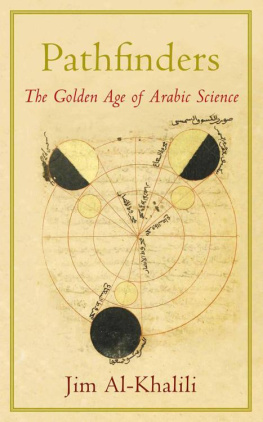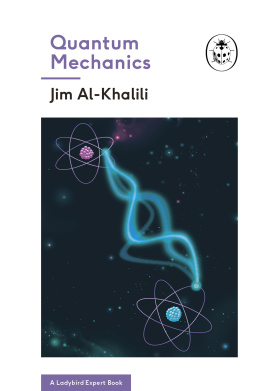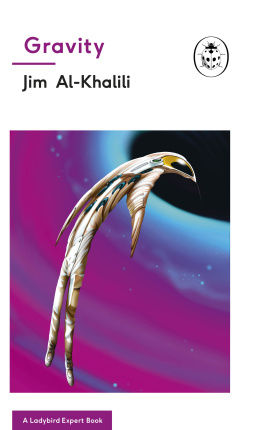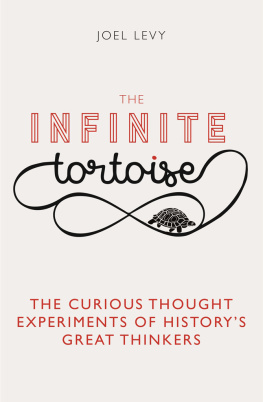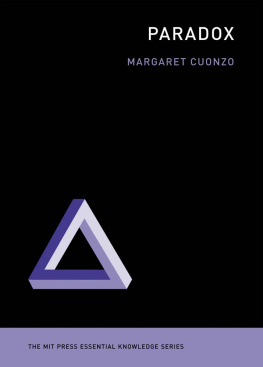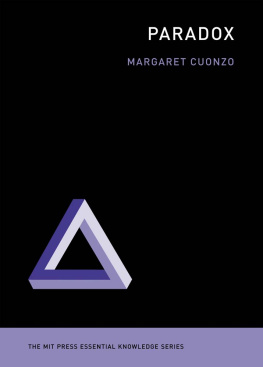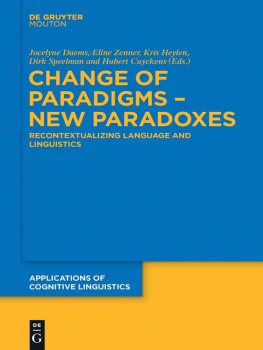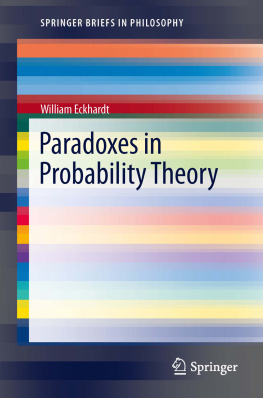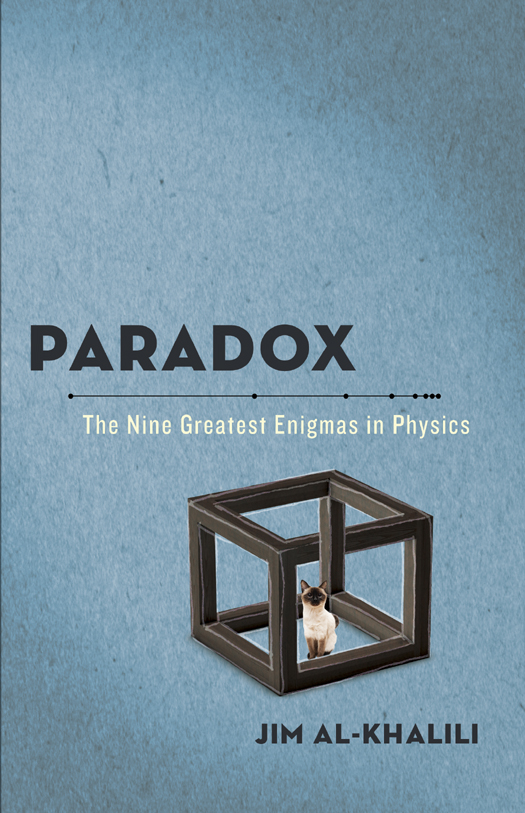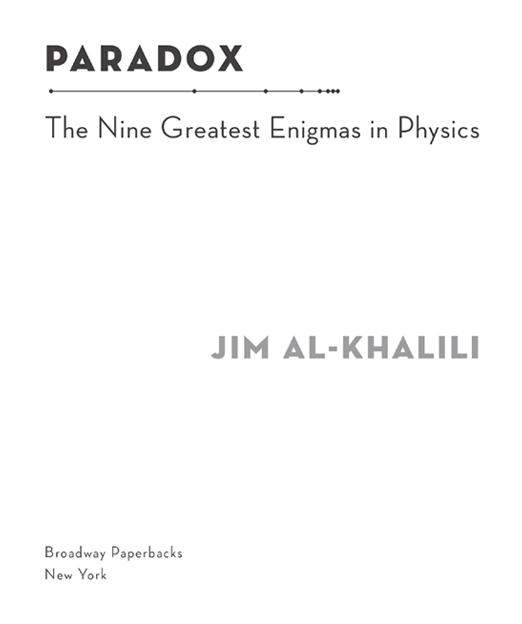
Copyright 2012 by Jim Al-Khalili
All rights reserved.
Published in the United States by Broadway Paperbacks, an imprint of the Crown Publishing Group, a division of Random House, Inc., New York. www.crownpublishing.com
Broadway Paperbacks and its logo, a letter B bisected on the diagonal, are trademarks of Random House, Inc.
Originally published in the United Kingdom by Transworld Publishers, a division of The Random House Group, Ltd., London.
Library of Congress Cataloging-in-Publication Data
Al-Khalili, Jim, 1962
Paradox: the nine greatest enigmas in physics / Jim Al-Khalili. 1st ed.
p. cm.
1. ScienceMiscellanea. I. Title.
Q173.A395 2012
500dc23 2012005011
eISBN: 978-0-307-98680-1
Illustrations: Patrick Mulrey
Cover design: Kyle Kolker
Cover photography: istockphoto
v3.1
To Julie, David, and Kate
Contents
Preface
Paradoxes come in all shapes and sizes. Some are straightforward paradoxes of logic with little potential for investigation, while others sit atop icebergs of entire scientific disciplines. Many can be resolved by careful consideration of their underlying assumptions, one or more of which may be faulty. These, strictly speaking, should not be referred to as paradoxes at all, since once a puzzle is solved it ceases to be a paradox.
A true paradox is a statement that leads to a circular and self-contradictory argument, or describes a situation that is logically impossible. But the word paradox does tend to be used more broadly to include what I prefer to call perceived paradoxes. For such puzzles there is a way out. It may be that the paradox has hidden within it a trick or sleight of hand that deliberately misleads the listener or reader. Once the trick is uncovered, the contradiction or logical absurdity disappears. Another type of perceived paradox is one in which the statement and the conclusions, while initially sounding absurd or at the very least counterintuitive, turn out on more careful consideration not to be so, even if the result remains somewhat surprising.
And then there is the category of paradoxes in physics. All of thesewell, nearly allcan be resolved with a little bit of fundamental scientific knowledge; and these are the ones that I focus on in this book.
So let us first take a brief look at a true logical paradox, just so that it is clear what I am not going to be talking about. This is a statement that is constructed in such a way that there really is no way out of the loop.
Take the simple assertion: This statement is a lie. On first reading, I imagine the words themselves will seem straightforward enough. Think about their meaning, however, and the logical paradox will become evident as you work carefully through the statements implications. Can five simple words really give you a headache? If so, I would argue that it is a fun sort of headache, which is perhaps itself a paradox, and one that you will no doubt feel sadistically obliged to pass on to family and friends.
You see, This statement is a lie is telling you that in announcing itself to be a lie it must itself be a lie, and so it is not a liein which case it is true, which is to say that it really is a lie, which means it is not a lie, and so on in an infinite loop.
There are many such paradoxes. This book is not about them.
This book is instead about my own personal favorite puzzles and conundrums in science, all of which have famously been referred to as paradoxes, but which turn out not to be paradoxes at all when considered carefully and viewed from the right angle. While powerfully counterintuitive when first described, they always turn out to be missing some subtle consideration of the physics which, when taken into account, knocks out one of the pillars on which the paradox is built and brings the whole edifice toppling down. Despite having been resolved, many of them continue to be referred to as paradoxes, partly owing to the notoriety they gained when first articulated (before we had figured out where we were going wrong) and partly because, so presented, they are useful tools in helping scientists get their heads around some rather complex concepts. Oh, and because they are such delicious fun to explore.
Many of the puzzles we will look at do indeed seem at first to be true paradoxes rather than just perceived ones. That is the point. Take a simple version of the famous time travel paradox: what if you were to go back into the past using a time machine and kill your younger self? What happens to the killer you? Do you pop out of existence because you stopped yourself from growing older? If so, and you never did reach the age at which you became a murderous time traveler, then who killed the younger you? The older you has the perfect alibi: you never even existed! So if you did not survive to travel back in time and kill your younger self, then you do not kill your younger self and so you do survive to grow older and travel back in time and kill yourself, so you do that, so you dont survive, and so on. This appears to be the perfect logical paradox. And yet physicists have not yet ruled out the possibility, certainly in theory, of time travel. So how can we extricate ourselves from this paradoxical loop? I will discuss this particular paradox in .
Not all perceived paradoxes require a scientific background to make sense of them. To demonstrate this, I have given over the first chapter to a handful of such perceived paradoxes that can be resolved with commonsense logic. What do I mean by this? Well, consider a simple statistical paradox in which it is quite possible to draw the wrong conclusion from a basic correlation: it is known that towns with larger numbers of churches generally have higher crime rates. This is somewhat paradoxical, unless you believe that churches are breeding grounds for lawlessness and crimewhich, whatever your religious and moral views, seems pretty unlikely. But the resolution is straightforward. Both a higher number of churches and a higher absolute level of crime are the natural results of a larger population. Just because A leads to B and A leads to C does not mean that B leads to C or vice versa.
Here is another example of a simple brainteaser that sounds paradoxical when first stated, but whose paradoxical nature dissolves away once it has been explained. It was recounted to me a few years ago by a Scottish professor of physics who is a colleague and close friend of mine. He claims that every Scotsman who travels south to England raises the average IQ of both countries. The point is this: since all Scotsmen claim to be smarter than all Englishmen, then any one of them would enhance the average IQ of England by living there; however, to leave Scotland is such a foolish act that only those less intelligent among them would do so, leaving the average of those remaining slightly higher. So you see, at first glance it sounds like a paradoxical statement, yet with simple logical reasoning it can be resolved beautifullyif not convincingly for the English, of course.
Once we have had some fun in with a few well-known paradoxes that can be resolved without any science, we will move on to my nine chosen paradoxes in physics. After stating each one, I will lay it bare and explain how it evaporates away to reveal the underlying logic that shows its fallacy, or why it is not really an issue at all. They are all fun because they have some intellectual meat, and because


